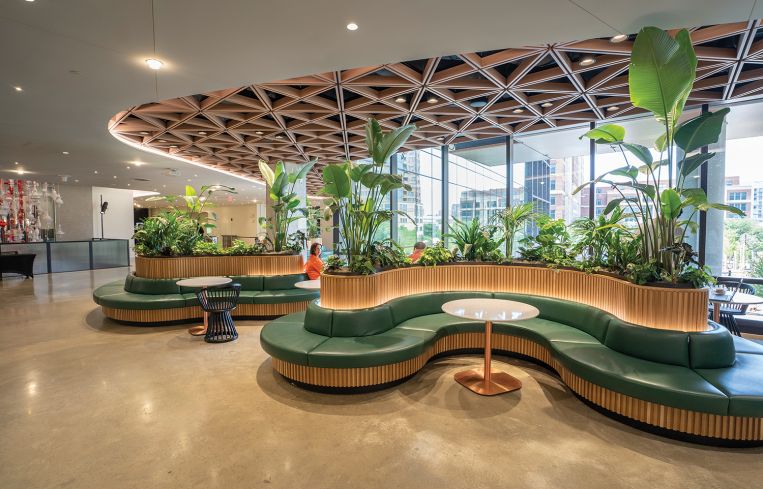Sunday Summary: Wait… The News Was Good Last Week?!
By The Editors June 18, 2023 9:00 am
reprints
For more than a year we had been awaiting Fed Chairman Jerome Powell’s periodic press conferences like we await our latest body-mass index results.
It was never going to be good — we could only hope for varying degrees of not-terrible.
Needless to say, Powell surprised us all last week by giving some unadulterated good news by declining to raise interest rates.
Well, it was almost unadulterated. “Nearly all committee participants expect that it will be appropriate to raise interest rates somewhat further by the end of the year,” Powell warned at the conference. “But at this meeting considering how far and how fast we have moved, we judged it prudent to hold the target rates steady to allow the committee to access additional information and its implications for monetary policy.” (Former Treasury Secretary Larry Summers, for one, was willing to criticize the Fed’s seemingly mixed messages.)
Part of the Fed’s decision (aside from obvious considerations over possible fallout from the regional banking crisis) has something to do with the fact that consumer price increases have been slowing down, which was the purpose of raising interest rates in the first place.
One of the biggest drivers of higher costs had been housing, but that, too, is beginning to cool.
“We are essentially deflating from very big price increases during COVID,” Columbia University Business School professor Tomasz Piskorski told Commercial Observer. “I wouldn’t be surprised and I wouldn’t see any problem in some declines in housing prices and rents towards more of the long-term average.”
And while no single move from the Fed would mean that the pain of the office market is simply going to up and vanish, there were some other pieces of good news that reminded us of the good old days when a 100,000-square-foot-plus lease was par for the weekly course.
In Washington, D.C., the law firm Crowell & Moring signed a 198,877-square-foot lease to anchor the Rockefeller Group and Stonebridge’s $300 million, 399,617-square-foot office redevelopment at 600 Fifth Street NW.
On the West Coast, the Los Angeles Housing Department is apparently in talks for a 300,000-square-foot lease at Brookfield’s Gas Company Tower.
And money is being loaned out, like the $354 million that Innovo Property Group caged from Axos Bank and Cerberus Capital Management to recapitalize their industrial project in Long Island City, Queens, or the $150 million Tishman Speyer landed from RBC Capital Markets for its mixed-use project at the former Mazza Gallerie mall in Washington, D.C., or the $128 million Lonicera Partners and Rabina locked down for its luxury apartment building at 55 Willoughby Street in Downtown Brooklyn.
Even the most dreaded of all asset classes — office — can get money if the property and the location are right. For example, KPG secured a $50 million construction loan to finish 40 Crosby Street (aka The Crosby), its boutique SoHo office slated to be finished in 2024.
It can’t be all smiles und sunshine…
Speaking of office, we saw some interesting data last week: Washington saw the biggest influx of workers returning to the office last month according to Placer.ai. (Perhaps it had something to do with the federal government’s new workplace guidelines, which forced many employees back to their agencies’ buildings.)
And the data bore out something that many had long suspected: the most populous day of the workweek for offices is Tuesdays.
Apparently, the old “I can work from the beach house” no longer extends to just Fridays.
Did someone just say “beach house”?
There was at least one more thing to be wary about last week: the official start of hurricane season.
Aside from the human tragedies that will no doubt unfold in the wake of the next natural disaster, it’s looking like life in hurricane territory will be more expensive, too.
Insurance premiums in Florida, which are already three times higher than in the rest of the nation, are expected to soar. And, in some areas of South Florida, insurance companies might not cover any houses, even at a high premium.
“The construction codes outside Miami-Dade County are terrible,” said Oscar Seikaly, CEO and majority owner of NSI Insurance Group, an insurance agency based in Miami Lakes. “And, as a result, insurance companies are not going to insure any more homes in, say, the Naples area, unless the codes are upgraded. They’re not going to insure anything that is not going to be up to snuff in terms of quality of construction and resilience.”
The topic of insurance might have also been on our minds because Damac International revealed plans for the new condominium on the site of the Surfside condo collapse that will be designed by Zaha Hadid Architects (ZHA).
Damac paid $120 million for the site and is planning two connected 12-story buildings that will host 57 opulent units.
“While no work of architecture can ever remove the pain of the past, nor should it, a truly ambitious work of architecture can respect such a significant site,” Chris Lepine, director at ZHA, said in a statement.
Sunday reading
Finally, after years of preparation, Amazon HQ2 opened last week — and CO was able to get a look around.
In addition to its gargantuan size (2.1 million square feet), its respectable green space (2 acres of green roofs and an urban farm), its much appreciated amenities (50,000 square feet of retail), Met Park, as it’s called, promises to be one of the most carbon-efficient campuses in the country, with plans to be powered 100 percent by renewables.
“We took on these challenges to find ways to decarbonize Amazon’s real estate portfolio in order to meet our Climate Pledge commitment,” John Schoettler, Amazon’s vice president of global real estate and facilities, said on our tour of the facility. “We also know that if we can do this, we can help drive change across industries and propel us all forward in efforts to reduce carbon emissions. Met Park exemplifies carbon-reduction solutions and energy-efficiency enhancements that are possible today.”
All good things to read about this Sunday. Or, if you’d prefer something to listen to, check out the second installment of CO’s “Back Story” podcasts. This week our topic is the rise of alternative lenders!
Here’s wishing you a happy Father’s Day and a good Juneteenth tomorrow.


